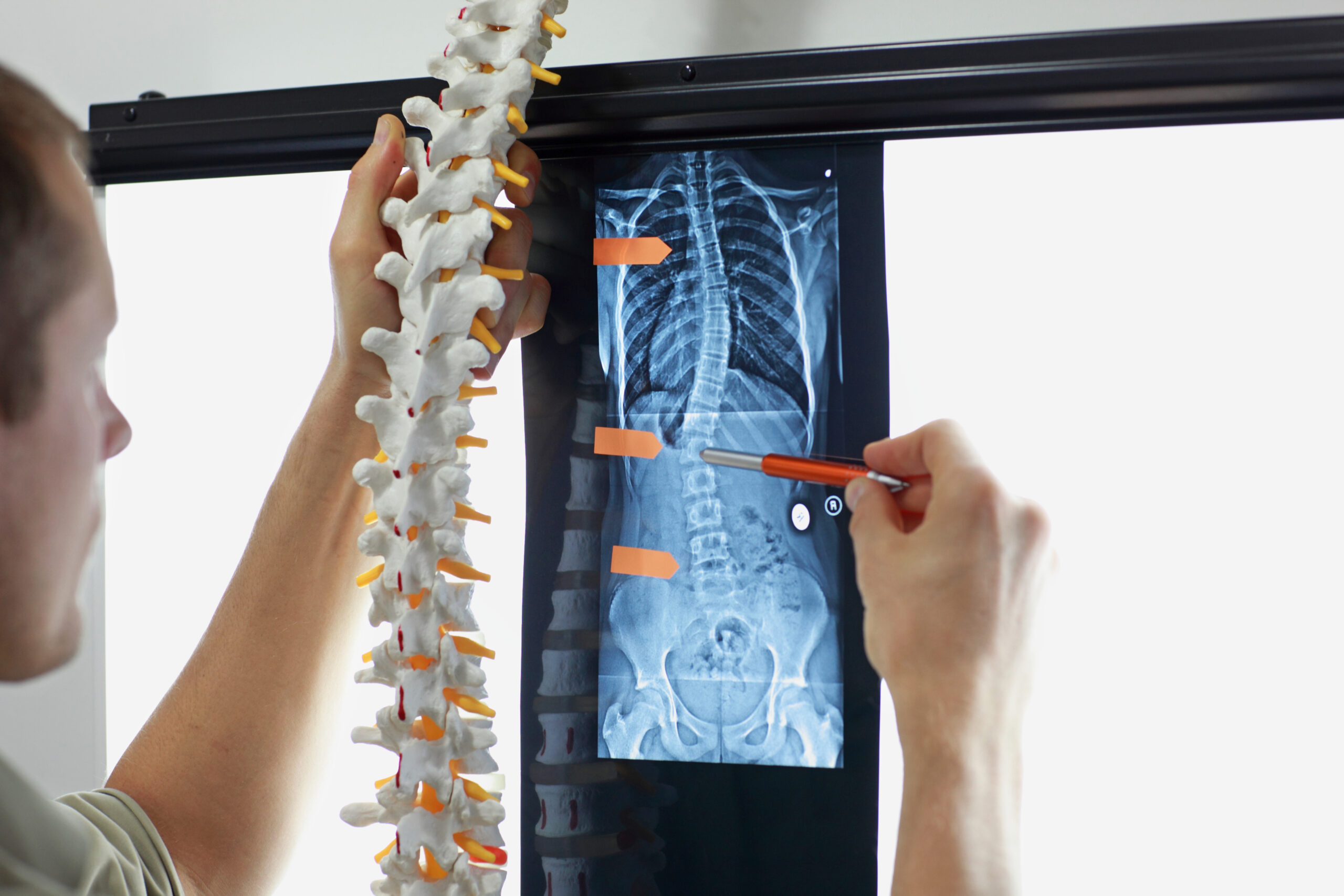
Advanced Spine Surgery
Advanced Spine Surgery: What Does That Even Mean?
To most, it might seem like all spine surgery is advanced spine surgery. However, there is a category that goes above and beyond the rest. Advanced spine surgery encompasses a spectrum of surgical procedures designed to address complex spinal conditions beyond what traditional or basic spinal surgeries can manage. It involves a level of intervention that often involves intricate techniques, specialized instrumentation, and a high level of expertise—Expertise being the most crucial aspect.
This inherent complexity arises from the diverse array of spinal disorders it aims to treat, such as degenerative disc disease, spinal stenosis, spinal deformities, spinal tumors, spinal trauma, and spinal cord injuries, among others. As we’re sure you can imagine, these conditions may require surgical solutions that go beyond simple decompression or fusion procedures.
Typically, these advanced spinal procedures can be categorized based on five unique factors:
- Technique
- Instrumentation
- Approach
- Risk and Complexity
- And Expertise
But then that begs a new question. How are these things measured? And how do I know if what I’m going through requires advanced surgery or something simple? First, let’s take a deeper look at these factors. Then we can get into your specific situation and what you can do about it.
The 5 Unique Factors of Advanced Spine Surgery
As mentioned before, there are certain factors that help us categorize these procedures and set them apart from others. Since it’s always been our goal to educate for anything else, here they are:
- Technique: This includes minimally invasive spine surgery (MISS), which involves smaller incisions and less tissue disruption compared to traditional open surgeries. MISS techniques may include endoscopic spine surgery, microdiscectomy, and percutaneous spinal fusion.
- Instrumentation: Advanced spine surgeries often utilize specialized instruments and implants to achieve optimal outcomes. This may involve the use of spinal cages, rods, screws, and artificial discs to stabilize your spine or restore proper alignment.
- Approach: Surgeons may employ different approaches to access the spine, such as anterior (from the front), posterior (from the back), lateral (from the side), or a combination thereof, depending on the specific pathology and your specific anatomy.
- Risk and Complexity: Due to the intricacies involved, advanced spine surgeries may carry higher risks compared to more straightforward procedures. Potential complications include nerve damage, infection, blood loss, and failed fusion, among others.
- And Expertise: Performing advanced spine surgery requires a high level of skill, training, and experience. Surgeons specializing in this field often undergo additional fellowship training beyond their general surgical residency to acquire the necessary skills.
Advanced spine surgery encompasses a range of specialized procedures tailored to address complex spinal conditions using advanced techniques, instrumentation, and surgical expertise. These surgeries aim to alleviate pain, restore function, and improve the quality of life for those living with challenging spinal disorders.
Spinal Disorders that Require Advanced Surgery
If you recently experienced a sudden trauma to your spine, like a car accident or slip and fall, it’s pretty easy to tell what your pain and discomfort originated from. The same goes for known congenital conditions and most chronic issues.
However, there are some that can be a little harder to recognize:
Degenerative Disc Disease (DDD): DDD is a condition characterized by the breakdown of intervertebral discs in your spine. As these discs degenerate, they can cause symptoms such as chronic back pain, stiffness, and reduced mobility. Advanced spine surgery options for DDD may include spinal fusion, disc replacement surgery, or minimally invasive procedures to address nerve compression.
Spinal Stenosis: Spinal stenosis is a narrowing of the spinal canal, leading to compression of your spinal cord and nerves. This can result in symptoms such as pain, numbness, weakness, and difficulty walking. Advanced spine surgery techniques for spinal stenosis may involve decompression surgeries like laminectomy, laminoplasty, or foraminotomy to relieve pressure on the spinal cord and nerves.
Scoliosis: Scoliosis is a condition characterized by an abnormal sideways curvature of the spine. Advanced spine surgery for scoliosis typically involves spinal fusion with instrumentation to straighten and stabilize your spine. Techniques may include posterior spinal fusion, anterior spinal fusion, or a combination of both, depending on the severity and location of the curvature.
Do any of those sound like you?
A Self-Assessment to See What You Need
Here are five quick and easy questions you can ask yourself to determine whether you need some sort of advanced spine surgery. If anything, they can help point you in the right direction:
- Do you experience difficulty with walking or maintaining balance?
- Do you have radiating pain, numbness, or weakness extending into your arms and/or legs?
- Have you noticed any changes in bladder or bowel function, such as loss of control?
- Do you experience any persistent and severe back or neck pain that significantly impacts your daily activities?
- Have conservative treatments like rest, medication, physical therapy, or injections failed to alleviate your symptoms?
Of course, if you answered “Yes” to any of those questions, it’s not some irrefutable sign you need spine surgery. However, it’s an indicator. While self-assessment can provide some insight, it’s crucial to consult with a qualified healthcare professional for an accurate evaluation.
Advanced Spine Surgery with Maxim Health
When all is said and done, the essence of these advanced procedures lies in the expertise of the surgical team performing them. Surgeons specializing in this field undergo extensive training and often pursue additional fellowship programs to refine their skills. This expertise is paramount in ensuring optimal outcomes for patients. But there’s something more to it than that.
When considering spine surgery of any sort, it’s essential to collaborate with a surgeon who not only possesses the expertise to address your condition effectively the first time but also cares about your well-being. The importance of working with a skilled and compassionate surgeon cannot be overstated, as they play a pivotal role in guiding you to a better, healthier life.
By prioritizing expertise and seeking guidance from qualified professionals, you can embark on a journey toward better spinal health with confidence and assurance.










